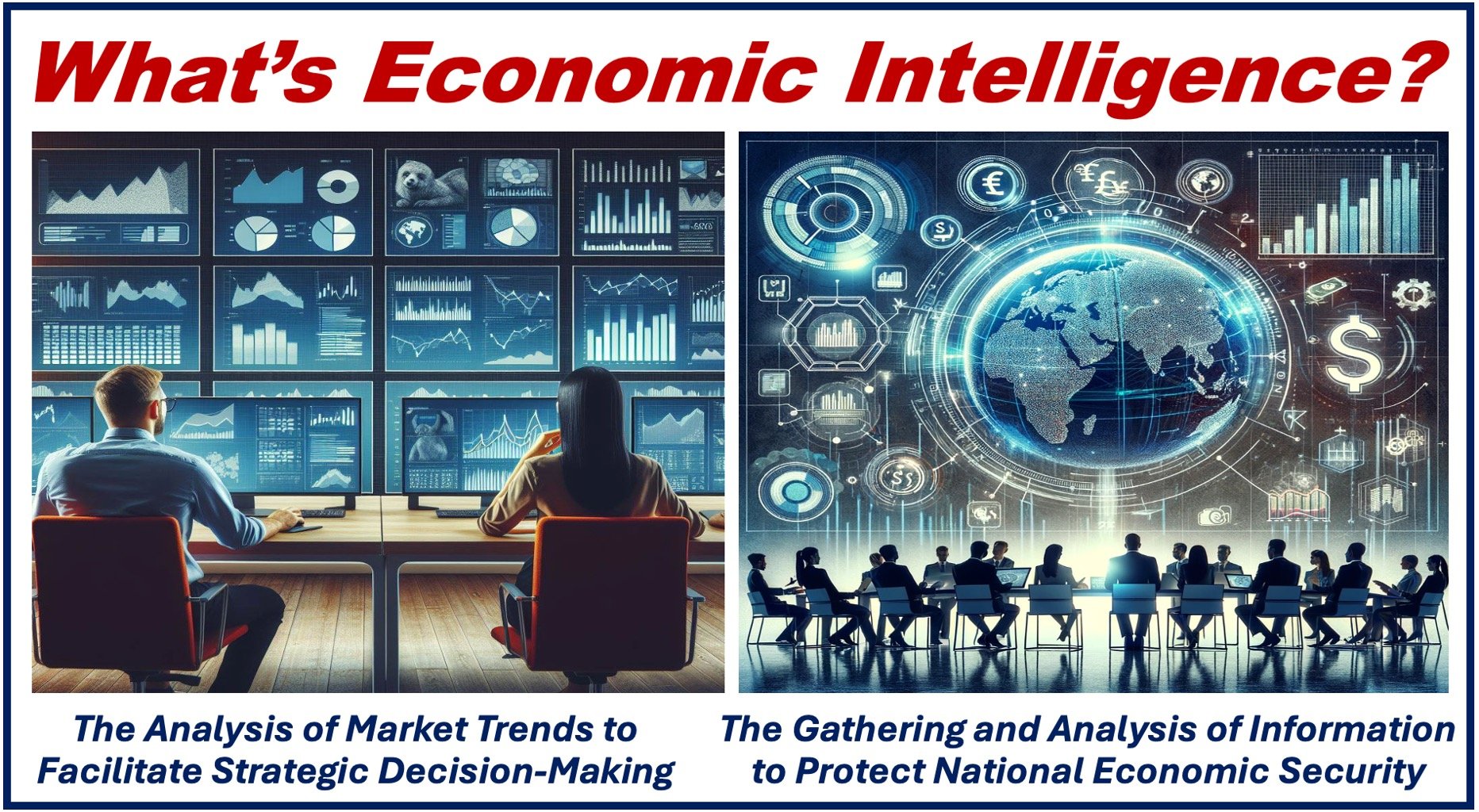Economic Intelligence is all about gathering, analyzing, and utilizing economic information to help people make informed decisions. It combines aspects of competitive intelligence, market research, and economic analysis to give businesspeople, economists, journalists, policymakers, and other stakeholders a comprehensive review of the economic landscape.
The term encompasses insights across various scales, from individual companies to regional, national, and global levels.
Later in the article, we explore how ‘economic intelligence’ extends to encompass aspects of national economic security.
Economic intelligence – gathering data
Analysts gather data on economic conditions, industries, trends, and competitors. They then sift through this information to identify opportunities, patterns, and possible threats.
Their goal is to provide actionable insights that can guide policymaking, business development, and strategic planning. The term “actionable insights” refers to data that we can act upon.
Macroeconomic indicators
A key aspect of economic intelligence is understanding the macroeconomic environment, that is, the broader economy. This includes such factors as inflation, GDP growth rates, unemployment levels, and trade balances.
Such indicators can significantly influence the choices that are available to a company or country.

Economic intelligence and industry analysis
Industry analysis involves looking at specific sectors and understanding their performance, structure, competition, and future prospects. In this context, the term “sectors” refers to industries or fields of business such as the pharmaceutical, automotive, or mining industries. It also includes specific services such as banking or insurance.
Looking at specific sectors can help businesses identify new markets, understand competitive forces, or identify investment opportunities.
Competitors
Economic intelligence also entails gathering comprehensive information about competitors and maintaining continuous surveillance on their operations. This process includes analyzing their financial performance, observing their activities, and scrutinizing their strategic initiatives. In today’s fiercely competitive environment, such vigilance is crucial for staying ahead.
By understanding rivals’ strengths and weaknesses, organizations can devise strategies that leverage their own competitive advantages effectively.
Economic intelligence, espionage, and national security
Espionage
There is another dimension to economic intelligence that borders on national security: economic espionage.
This involves covertly gathering trade secrets, proprietary technologies, sensitive financial information, and other confidential data.
This is typically carried out for the benefit of a competitive entity or another nation.
This type of data gathering and analysis is often illegal. It can even undermine a country’s economic stability and competitive advantage in the marketplace.
In many countries, governments engage in counterintelligence measures to protect their economic interests.
National security
In many countries, governments today are trying to determine how future trends, events, and catastrophes may affect the economy.
Global warming, for example, is becoming a major concern, especially in countries that already experience serious droughts, high temperatures, or hurricanes, or whose territories are very close to sea level.
Economic intelligence encompasses the identification of current and future risks, assesses potential damage, and outlines preventive measures or survival strategies for such eventualities.
